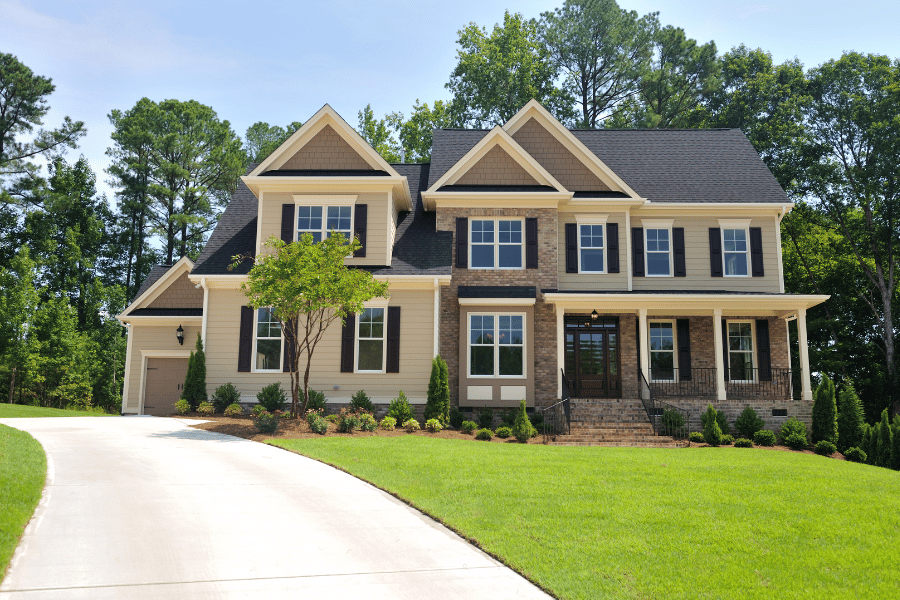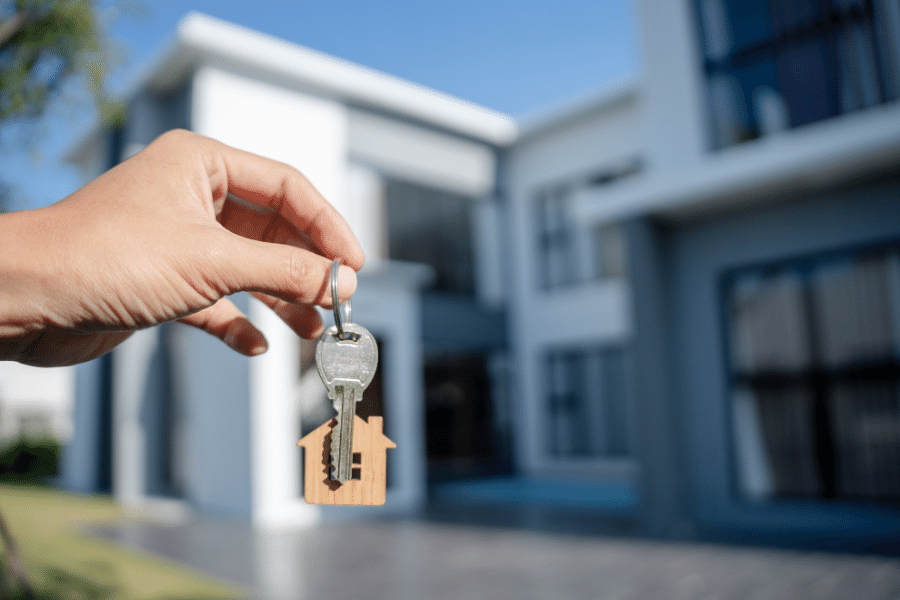Why Overpricing Your Home is a Bad Idea
What are the consequences of overpricing a home? Here is what to consider before you overprice your home!
Overpricing your home is one of the biggest mistakes sellers make, and only realize once it's too late since it leads to your home losing its value. This happens for several reasons.
Our local market of Raleigh, NC, is hot, and homes are known to sell fast. The ones that don't sell fast are in trouble. Chances are they overpriced their home and will have to sell for less than its actual value. There are strategies to help overcome overpricing your home, which we will discuss later in this article.
Naturally, a seller wants to make the most money on the sale of their home. Anyone selling a home wants to net as much money as possible. Most sellers must realize you will make less if you overprice the home.
When determining a list price for a home, sellers are often tempted to inflate the sales price significantly. There is a common misconception that listing a home above market value will lead buyers to place higher offers on a house than it is worth. Remember, Realtors want your home to sell at its highest possible price; that's how a Real Estate Agent makes money.
Unfortunately, that is not the case. Buyer's agents, often the buyers themselves, usually know when a home is overpriced. With the vast number of market research tools and the ability to quickly find sale prices online, buyers and their agents will do extensive research before offering. If buyers see that similarly sized homes in your area are selling lower than your asking price, they will know that the house is overpriced.
Most buyers don't want to waste time touring an overpriced home since they know the seller's expectations are unrealistic. Therefore, overpricing your home may lead the listing to sit on the market for months without offers or showings.
Celebrities selling their mega mansions for millions of dollars are being forced to slash their home prices because they were overpriced amid a market cooldown.
1. Buyer Demand
The first few days after listing your home are critical, as this is when you will get the most views of your listing online. If your home is priced well above market rate, you risk scaring off buyers, significantly decreasing buyer demand.
Buyers working with real estate agents lean heavily on their agent's market knowledge. A good agent will know immediately if your home is priced above the market and will inform their buyer that it needs to be priced better. They may also talk the buyer out of seeing your home for fear of wasting time looking at an overpriced home. Buyer's agents also want to avoid dealing with the hassle of negotiating an offer with a seller on an overpriced home.
For example, suppose a home is listed for $600,000 but is worth $500,000. In that case, the buyer's agent will have to put tremendous effort into getting a seller to consider an offer at $500,000, which many agents know better than to waste time doing.
Sellers who overprice their homes often assume they will find a buyer not working with a realtor and will not know that the house is listed above the market rate. However, this is only sometimes the case. Even if a buyer is not using a real estate agent, they will still most likely avoid looking at your home because they will see that it is out of their price range. They will most likely research ahead to be well-informed on market pricing.
Sellers sometimes incorrectly assume that every improvement they have made to their home translates into a higher price. Unfortunately, a home's worth is determined by the amount homes sell for in their area – not by the new faucets or cabinets. If you plan on making costly renovations to your home for a higher price, consult a realtor on what work should and shouldn't be done.
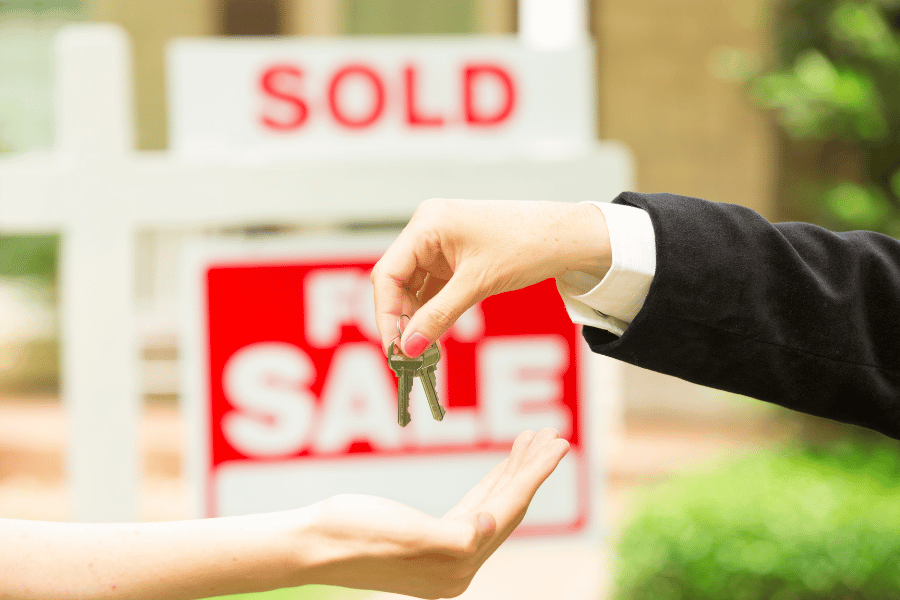
2. Days on the Market
The longer a home sits on the market, the less appealing it is to buyers. If buyers see your home has been on the market for several months, they will assume something is wrong with the property.
Here's the other reality about overpricing a home: the longer the house sits, the higher the chances are of the market changing unfavorably. If the market turns downhill, you may drop the selling price considerably lower than the market rate when you initially listed it, leading to a more significant loss.
When homes are priced reasonably in line with the market, sellers have a greater chance of the home selling quickly, possibly in as little as two weeks, avoiding the possibility of the market turning sour.
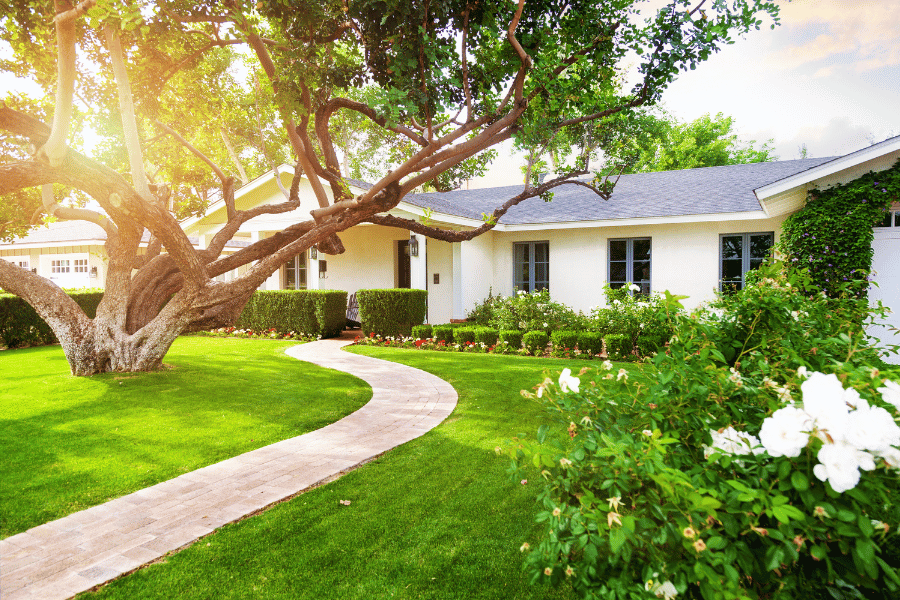
3. Showings
The fastest way to know if you overpriced your home is by the number of showing requests you receive—especially when the house is initially listed. If your home has been on the market for several weeks and zero buyers have shown interest in scheduling a showing, that is a tell-tale sign that it may be overpriced.
When sellers do not receive showing requests, they typically assume that hosting an open house will help drive interest. However, if the home is overpriced, those attending the open house are most likely just nosy neighbors interested in seeing what the home looks like and not interested in putting in an offer.
Having several people attend an open house may make the seller feel like they priced their home correctly. Still, if no one makes an offer – even those who expressed interest at the open house – the seller may grow highly frustrated and discouraged.

4. Price Reductions
Buyers will become increasingly suspicious whenever the price is reduced on a home. What is wrong with the house that the price keeps dropping? Buyers may note that you have been consistently dropping the price every few months and may wait to make an offer until you bring the price down more.
5. Stale Listing
Listing a home for sale can be a costly endeavor. Many sellers hire professional cleaning companies to clean their homes once or twice weekly in preparation for showings and open houses. If the home sits on the market for months, this may become quite costly. Sellers typically spend money on marketing, which can also be very expensive. The longer the home sits, the more money must be funneled into marketing, leading to more wasted funds.
If you are in a strong seller's market where homes are selling for higher prices than usual, you may miss out on that opportunity by pricing much higher than you should. If you price your home competitively, however, you may sell your home in as little as a month or two.
If the real estate market turns particularly sour while your home is listed for sale for an extended period, you may have to drop your home price to below market value, meaning you may make significantly less than you could have on your home.

6. Lowball Offers
Overpriced homes will most likely receive offers at or below the market rate. This leads to tremendous frustration on the seller's part and wasted time and energy turning down lowball offers.
For this reason, strong realtors typically will not even take on a listing if the seller's list price expectations are unrealistic. Realtors want to save time, and constantly turning down or attempting to negotiate low offers can save time, money, and effort on the realtor, seller, and buyer's behalf.
7. Desperation
The longer your home sits on the market without offers, the more desperate you may be to sell it – especially if you need to move within a certain period. After sitting on the market for months, you may receive a lowball from a buyer – lower than you probably would have received had the home been listed at market rate.
Feeling desperate, sellers may consider these low offers or, shockingly, even accept a lowball offer simply because their home has been on the market for so long that agents and buyers have lost interest in it.
FAQs
Did my Realtor Overprice my House?
In most markets, a home will typically receive an offer 34 days after being listed. Even if it is an offer you don't want to accept, most homes will at least have something. If your home has been on the market for several weeks (or months) and you haven't received any offers, your home may be overpriced. Similarly, if your home has been on the market for several weeks and you haven't had any showing requests, your home may be priced incorrectly.
If you are suspicious that your realtor overpriced your home, you can compare what other homes in your area are selling for. To do that, search online for homes in your neighborhood that are similar in size. Your home may be overpriced if they are on the market for significantly less than yours.
When selling a home, sellers typically interview several realtors before deciding who to list with. If most realtors valued your home at $400,000, but one agent valued it at $550,000, they are probably trying to overprice your home.
The realtor may be very persuasive, and the thought of getting $150,000 more on your home than you thought you would is tempting, but the chances of actually getting an offer significantly above the market rate are scarce. The more likely scenario may involve the points mentioned in this article: your home will sit on the market for months on end without offers or showings, leading you to eventually drop the price to what it should have been in the first place.
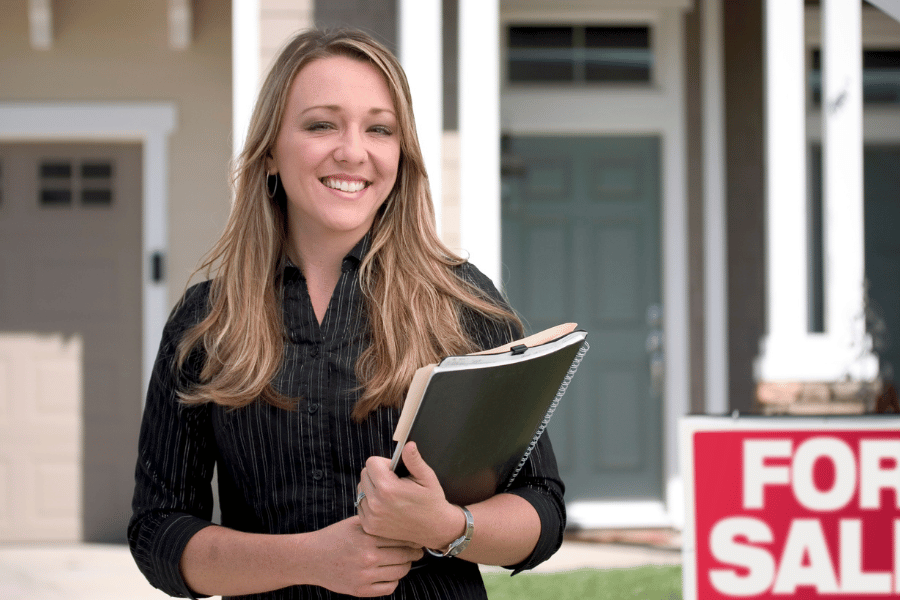
How do you sell an overpriced house?
If you sense that your home may be overpriced and your realtor pushes you to keep it at that price point, re-listing your home with an agent who better understands the market may be worthwhile. Take new, updated pictures and write a new property description to help give the listing a fresh boost.
Conduct your careful research on how many properties are selling in your area. Don't solely rely on your realtor; take the time to research prices yourself, as you want to avoid making the same overpricing mistake twice. Only list when confident you have priced your home appropriately with the market.
How to Identify Overpriced Homes?
The fastest way to know if a home is overpriced is by looking at how much neighboring homes sell for. If most homes in the area sell for $500,000, but one similarly sized home is listed for $675,000, it is most likely overpriced.
If a home has been on the market for an extended period while the houses around it have sold relatively quickly, it could be overpriced. If the home doesn't appear to have anything noticeably wrong with it but has been sitting on the market for a long time, the list price is most likely the problem.
How to Make an Offer on an Overpriced Home?
Making an offer on an overpriced home always starts with research. Determine how much the house is worth by looking at similar home sales in the area and provide the seller with your research to back up your offer. After they see the numbers, they may be willing to come down to a realistic price.
If you want the home and they don't seem inclined to budge, you may need to get creative in swaying the seller. Consider including a flexible closing date, minimal contingencies, or a large deposit to make your offer stand out. If you show the sellers you are willing to work with them, they may be more likely to consider your request – even if it is lower than their asking price.
Be prepared to negotiate quite a bit and increase your offer. The sellers may not accept your initial submission but, with some negotiating, may be willing to take something higher than your offer but still below their list price. Working with a realtor is highly beneficial when negotiating offers, especially on overpriced homes, as they have the experience necessary to help sway sellers.
What Happens if I Price My Home Too Low?
If you price your home too low, keep it at the current price but hold back on offers until a buyer comes in above the asking price. Be wary of pricing significantly below market, as that will lead you to lose money on your home. However, pricing it slightly under need may lead to several buyers competing for your home and working to outbid one another.
Things to Consider Before You Overprice Your Home - Final Thoughts
Overpricing a home is a tempting thought to any seller. Sellers understandably have a strong emotional attachment to their homes and tend to value the home much higher in their minds than what the market numbers indicate. This is extremely common, so sellers should work with trusted realtors who understand the market, have sold several homes, and know your area well.
Most sellers don't realize they overpriced their home until after the market lets it sit with a 'for sale' sign in the yard for months. After a certain number of days, the house becomes stale, and the seller begins to showcase their desperation with a price reduction. I've seen homes drop 40% from their list price and are still unable to sell simply because they overpriced the house when they listed it.
Sellers have conditioned some Real Estate Agents to tell them what they want to hear. The Real Estate Agent does this out of fear that the seller will work with another Agent. Whether you are using a flat fee listing service or a Real Estate Agent, you must be sure that the person isn't afraid to tell you what you don't want to hear. Working with a Real Estate Agent, your trust is crucial.
Sometimes sellers say things like, 'Well, I upgraded this, this, and this,' as if because they spent money, they should automatically redeem that money in the price. Only some home upgrades will add value; some are a colossal waste of money.
Often, sellers say things like, 'My real estate agent wants to price my home too low,' and they assume the Agent is doing that to make it an easy sell. This is understandable from a seller's point of view, yet it couldn't be further from the truth. Your Real Estate Agent likely wants to price your home to create the highest demand. The higher the market, the more your home will sell for. The more your home sells for, the more money you walk away with as a seller.
